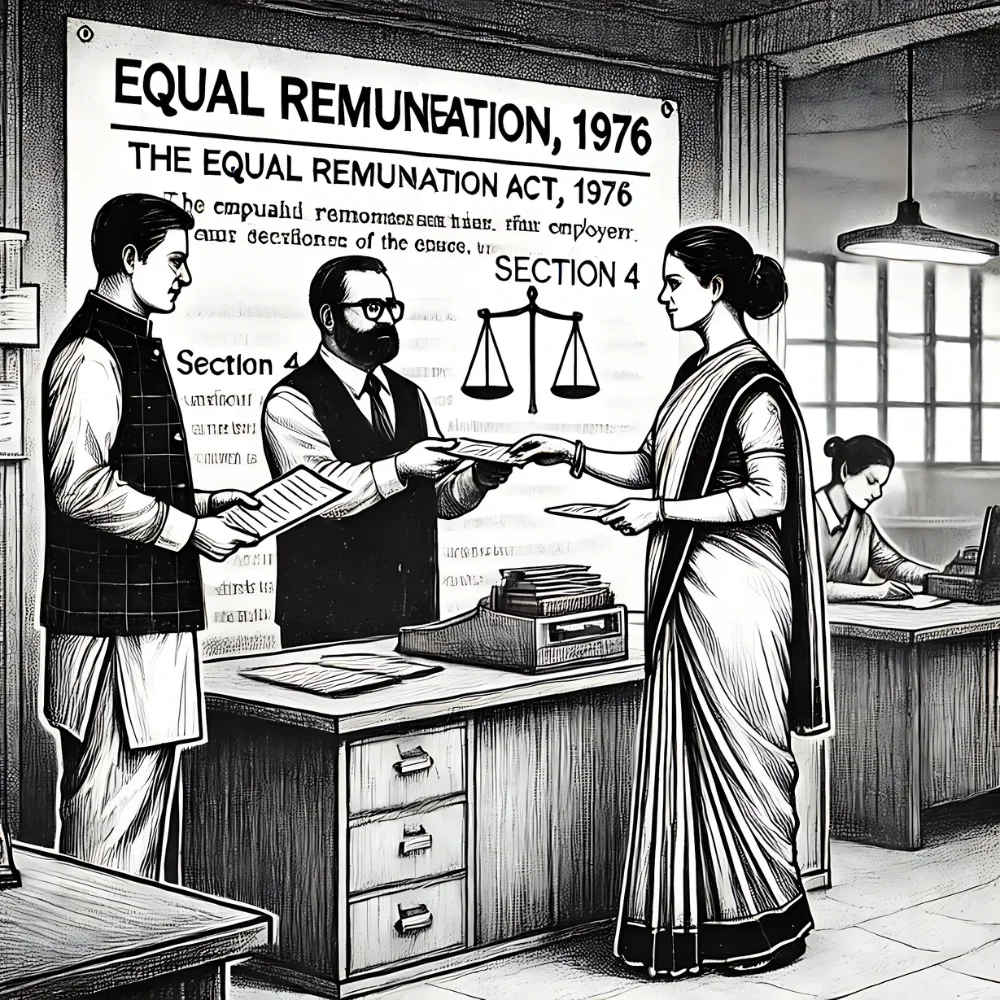What Is The Equal Remuneration Act, 1976?
Overview
The Bharatiya Nyaya Sanhita (BNS) and Bharatiya Nagarik Suraksha Sanhita (BNSS) aim to modernize India’s legal system, ensuring justice, fairness, and transparency. These laws focus on protecting fundamental rights, improving judicial processes, and addressing modern legal challenges, in line with the Indian Constitution’s commitment to justice for all citizens.
Important Sections & Features of BNS and BNSS
- Section 125 of BNS: Ensures victims of crimes receive legal protection and compensation, emphasizing fair legal processes and access to justice.
- Section 203 of BNSS: Enhances procedural efficiency by streamlining case documentation, ensuring faster resolution of legal disputes.
- Justice P. N. Bhagwati’s Emphasis: Stressed the importance of legal equity, ensuring all individuals receive fair and just treatment under the law.
- Section 105 of BNS: Mandates the establishment of an advisory committee to guide legal institutions on law enforcement policies, procedural reforms, and ensuring fair legal practices.
- Section 128 of BNSS: Allows the government to appoint an authority responsible for handling claims, complaints, and violations related to procedural injustices or misconduct.
- Section 145 of BNSS: Requires law enforcement agencies to maintain a register containing case details and documents related to legal proceedings.
Description
Landmark Case: People’s Union for Democratic Rights v. Union of India
- No institution shall deprive any individual of their fundamental legal rights as guaranteed under BNS and BNSS.
- There should be no bias in legal proceedings based on social, economic, or personal status.
- Government institutions must ensure fair treatment of individuals in legal matters and prevent any misuse of power.
- However, this clause does not affect legal provisions that provide special protections for Scheduled Castes, Scheduled Tribes, ex-servicemen, or other marginalized groups.
Advisory Committee
- The relevant legal authorities shall appoint one or more advisory bodies to provide guidance on legal reforms.
- Each advisory body must consist of at least ten members, ensuring representation from diverse backgrounds.
- The advisory body will assess the effectiveness of law enforcement, judicial efficiency, and procedural fairness.
Government Can Appoint Authority:
- A legal officer shall be appointed to handle claims and complaints related to procedural violations.
- Objections can be raised in case of any contravention of legal provisions.
- Appeals can be made in cases where justice is denied due to procedural lapses.
- In case of complaints, adequate measures shall be taken to ensure that all legal provisions are strictly followed.
- Authorities must maintain detailed case records in the official registers.
Reviews (0)
Be the first to review “What Is The Equal Remuneration Act, 1976?” Cancel reply









Reviews
There are no reviews yet.